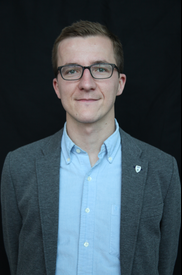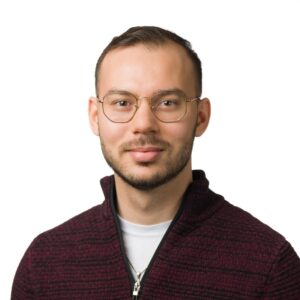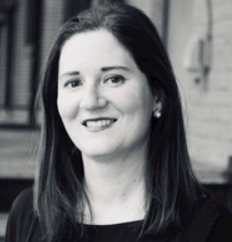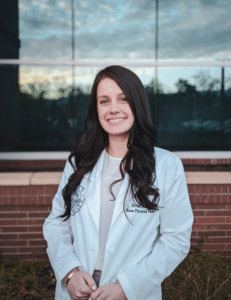Interview with Admin Husić
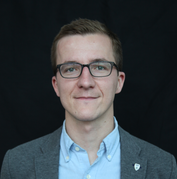
Admin Husić is an associate professor of civil and environmental engineering at Virginia Tech. Previously, he worked as an assistant professor at the University of Kansas. He earned his PhD, MS, and BS in civil engineering at the University of Kentucky. His lab at Virginia Tech focuses on understanding how human activities impact the quantity and quality of water to ensure its security and equitable access.
Can you describe your occupation, including your title, industry, duties, and the impact that your actions have in your field?
I am an associate professor of civil and environmental engineering at Virginia Tech. In this role, I have three main duties: teaching, research, and service. Teaching is the part of being a professor that most people are familiar with. As a teacher, I give lectures on my area of expertise, which is hydrology and water resources engineering. I teach students at the undergraduate level all the way up to the doctoral level. Professors also have considerable research responsibilities that include writing grants, leading scientific projects, and managing research groups. The last component of my job is service, which includes contributing my expertise to my department, university, engineering profession, and scientific community. This way, I help promote student success, engineering principles, and scientific communication.
I can see the impact of my actions most clearly in my work with students, both in my classroom and in my research group. I hope to instill in them mastery and enthusiasm for civil and environmental engineering. I do this by conveying the value of the course material, demystifying concepts, and preparing students to be better engineers. Some of the feedback I’ve received from students includes “I really enjoyed his teaching; he genuinely made me care about fluid mechanics.” Making someone care about fluid mechanics is about as much as you can ask for!
How did you get your start in your industry?
When I was younger, I really enjoyed watching the process of houses being built.Watching workers take an empty plot of land, put down a foundation, set up timber framing, and then finish the house felt satisfying. I was also reasonably good at math. These two interests naturally led me toward civil engineering. Once at university, I had so many positive experiences with professors that I wanted to become one myself. With some hard work and luck, I made that happen.
What steps have you taken over the years to advance in your industry?
Advancing as a professor requires establishing yourself as an educator and researcher in your area of expertise. The most effective way to do this is through publishing your work in peer-reviewed journals, securing research funding from federal agencies, and training the next generation of engineers and scientists. My journey on this path began as a PhD student at the University of Kentucky. There, I started small and published my first research papers, submitted some tiny grants, and served as a teaching assistant. Upon graduating, I moved to the University of Kansas, taking a position as an assistant professor. There, I continued my work and published dozens of papers, brought in millions of dollars in research grants, and helped many graduate students defend their thesis and dissertation work. For my efforts, I was awarded the National Science Foundation CAREER Award, which is their highest recognition for early-career scientists. All of these successes culminated in my recent move to Virginia Tech, one of the top civil engineering programs in the country. I am grateful to all the folks along the way who played a role in helping me develop my skillsets.
How has working in engineering and academia strengthened your connection to the Bosnian diaspora community?
The Bosnian community is filled with people who show an incredible amount of strength and resolve. Our shared experiences and hardships have helped us develop good street smarts. Let’s not forget that we also have good book smarts, and I see that in much of the work that BAPA does. My sisters are great examples of this, having established businesses, earned college degrees, and led professional organizations. Like them, I hope to serve as an example of the career possibilities that exist out there that are available to members of the Bosnian community. I personally did not have a professional role model while growing up, so I hope to serve as one, especially to those in the next generation.
What has been a memorable project for you, and what did it teach you?
My students and I used radioactive fallout from 1960s nuclear weapons testing to identify the sources of soil erosion in a watershed. The contamination levels we dealt with were far, far below dangerous levels, so the whole project was very safe. When we began this experiment, we didn’t know if it would work or not. The theory said that it should, but sometimes, theory doesn’t translate to reality. The particular isotopes of plutonium that we used to trace the movement of sediment worked like a charm. We used our results to help stakeholders and local public works agencies improve their management of erosion. This project taught me to trust the math and pursue interesting projects!
What advice do you have for Bosnian-American professionals who want to join your industry and succeed like you?
Take initiative, follow your passions, and be kind to others. If there is something that inspires you, whether that’s starting a business or going back to school, act on it! If your goal is to leave some impact on the world, it’s a lot easier to do that if you are intrinsically motivated and care about your work. By being a kind and considerate team player, others will want to collaborate with you. These collaborations will lead to far greater achievements than are possible if you were to work alone. This isn’t just advice for your career; it can also apply to hobbies, volunteering, and family life. You have to take the first step and put in the effort. While there will be ups and downs, good things will come in time.

